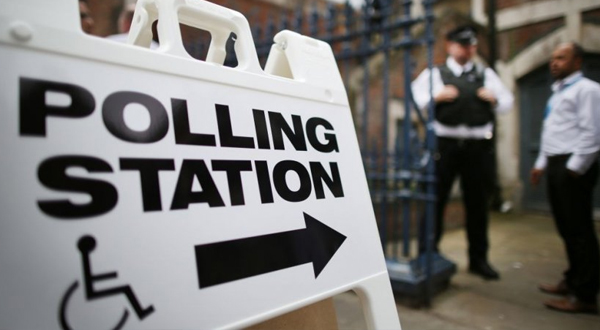DOHA: Oil plunged Monday after the world’s top producers failed to reach agreement on capping output to ease global oversupply, as tensions between Iran and Saudi Arabia stymied an anticipated deal.
Prices tumbled more than five percent in early Asian trade after top producer Saudi Arabia said a deal must include all members of the OPEC producer cartel — including rival Iran, which boycotted the talks.
Many had expected Sunday’s talks to reach a deal to stem a nosedive in oil prices that has seen them more than halve from their mid-2014 peaks, costing exporters billions in lost revenue.
But after hours of negotiations, the 18 producers concluded that they needed “more time” to reach an agreement on limiting supplies, Qatari Energy Minister Mohammed bin Saleh al-Sada said.
“The general conclusion was that we need more time to consult among ourselves in OPEC and non-OPEC producers,” Sada said, without giving a date for fresh talks.
At around 0515 GMT, US benchmark West Texas Intermediate for May delivery was down 4.53 percent, or $1.83, from Friday’s close at $38.35 a barrel.
Global benchmark Brent crude for June lost 4.04 percent, or $1.74, at $41.36.
“The weekend talks are demonstration that the Saudi government, as the deputy crown prince has clearly stated, doesn’t want to cede market share,” Ed Morse, head of global commodity research at Citigroup, told Bloomberg News.
“They are fearful that the world may be in a weak or bearish market for a long period of time. In a bear market, as they learned from the 1980s, if they cede market share it is very difficult to get it back.”
Saudi deputy crown prince Mohamed bin Salman had insisted before the talks that the world’s top producer would not accept a freeze in production without Iran’s participation.
Saudi Arabia has refused to cut its production despite the slump in prices in a bid to keep its market share, but pressure has been building as oil revenues have fallen and Riyadh posted a record budget deficit last year.
Tehran, which only reentered world markets after the West lifted sanctions in January, refused to attend the meeting, saying it wants to raise its output to pre-sanctions levels.
The Qatari minister tried to downplay how the failure would impact crude prices, which had rebounded some 50 percent from its February lows before the meeting, saying the market was becoming more balanced.
Along with high production from OPEC, the market has been left in surplus by slowing demand in major consumers like China as well as a surge in production from US shale producers.
Asked if Iran was at the centre of discussions, which included non-OPEC member Russia, Sada said Tehran’s participation would have made any freeze more effective.
“We respect their (Iran’s) position… certainly a freeze will be more effective if major producers including Iran are included,” said Sada. “That would help rebalance the market.”
Talks were delayed by several hours after some countries demanded changes to a draft agreement that called for freezing production until October, a delegate told the media.
The delegate said a “small team of experts” was assigned to make the changes before the ministers went into the official meeting in the afternoon.
Iran had initially said its OPEC representative would participate in the talks but on Sunday Oil Minister Bijan Zanganeh announced Tehran would send no delegation at all.
“The Doha meeting is for people who want to participate in the production freeze plan… but since Iran isn’t expected to sign up to the plan the presence of an Iranian representative isn’t necessary,” Zanganeh was quoted as saying by the Shana news agency.
“Iran will in no way give up its historic production quota,” Zanganeh said. OPEC said on Wednesday that Iranian oil production in March was 3.3 million barrels per day (bpd), up from 2.9 million in January, but still short of its pre-embargo level of around 4.0 million.
OPEC said its members pumped 32.25 million bpd in March — with Saudi Arabia accounting for nearly a third — up from an average of 31.85 million bpd in 2015.





